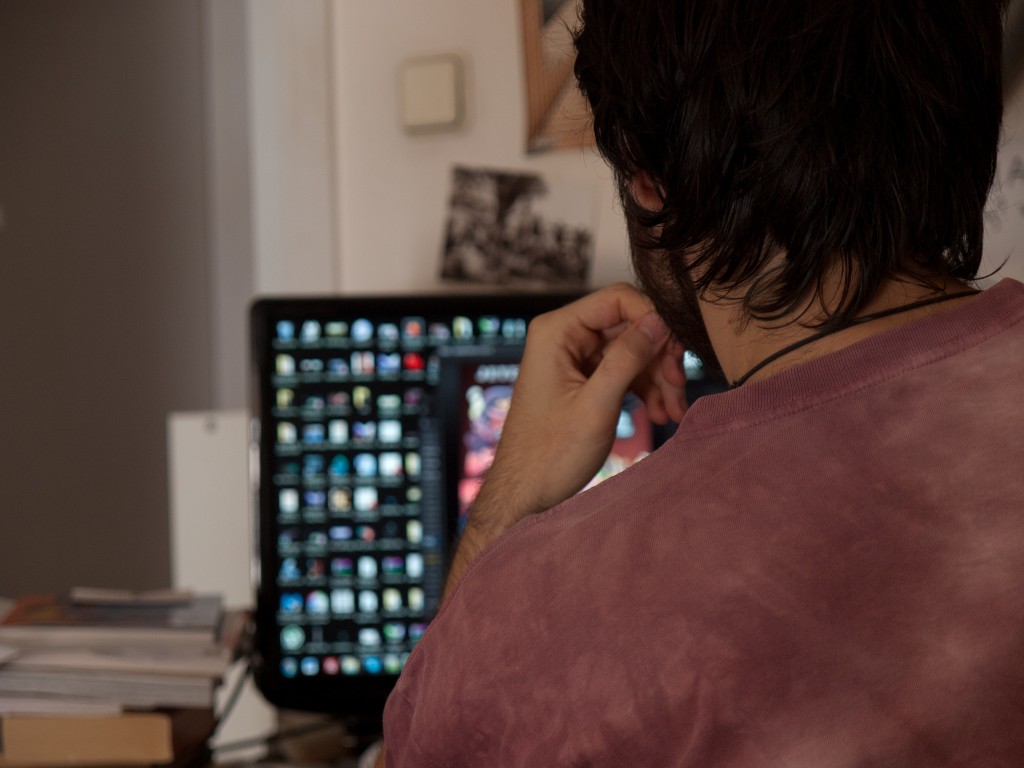 The Shallows: How the Internet Is Changing the Way We Think, Read and Remember by Nicholas G. Carr
The Shallows: How the Internet Is Changing the Way We Think, Read and Remember by Nicholas G. Carr
My rating: 5 of 5 stars
If you’re reading this review, you most probably belong to the group of people this book is targeted to: surfers of the net with accounts on multiple social networks, members of the “church of Google” (as Mr. Carr describes it in the book), all-around internet addicts but with the kind of soft addiction that hardly gets noticed, like drinking alcohol or thinking in clock time.
Actually, The Shallows makes many analogies on how the Internet has and will physically change our mind based precisely on the way clocks and even maps rewired the way we think — more mechanical, more abstract, more scientific. In the Web’s case, it’s also more up-to-date, more social, more ___ . You fill in the blanks with your favourite hip word used to describe how we’re all connected 24/7, how we’ve all got access to instant gratification/information, etc. I won’t trumpet the Web’s success in this review.
Marshall McLuhan, a pioneering media studies academic often referenced in the book, said that “our tools end up numbing whatever part of our body they amplify. When we extend some part of ourselves artificially, we also distance ourselves from the amplified part and its natural functions. […] Today’s industrial farm worker, sitting in his air-conditioned cage atop a gargantuan tractor, rarely touches the soil at all–though in a single day he can till a field that his hoe-wielding forebear cound not have turned in a month. When we’re behind the wheel of our car, we can go a far greater distance than we could cover on foot, but we lose the walker’s intimate connection to the land.” How would these analogies transfer to the information age? Which parts of us have been amplified as well as numbed by the Web? Are we conscious of these changes? Is it possible to really be aware of them when they have made us?
People gained a lot by inventing writing, books, maps, clocks, but always lost something in the process. Even though a lot is said about what was gained from the evolution of information technology throughout the ages (I should know that a lot is said, I studied cultural technology and communication!), there is little discussion in respect to what was lost with every new development. The human capacity for memory has definitely been one of the biggest sufferers: a punch from writing, a second one from printing, a kick from multimedia… The stab to the vital organ, however, is definitely coming from the Web. I don’t want to sound technophobic, I’m obviously far from it, but that doesn’t and shouldn’t stop me from observing my own loss of memory and ability to focus as it is being outsourced to the Web and related technologies, realising that my concentration, brain, interests and personaliy are being formed by the Medium Of The Most General Nature. If the Web proves to be the really great change it has already successfully shown and promised it shall further be, then there must be at least some discussion about which parts of us are most threatened by this new sacred technology and whether or not we should, in fact, duly sacrifice them for it.
The Shallows isn’t a perfect book but it does an excellent job of showing the darker side of what we’ve grown to love or use so much we never even think about (when was the last time you thought that writing and reading isn’t “natural” the same way speaking is?) In doing so, the book is quite fascinating. What it brings forward ought to be discussed this very moment, in the shaping years of this new technology, for change has never been this dramatic, so quick, what’s at stake has never been so important and far-reaching — both the potential liberating benefits as well as the dangers. I don’t have much hope there will actually be any discussion; just have a look at all other areas of importance and how great we’re doing with those. I do however appreciate that there is at least some pondering going on on what being human means and how the recent developments have changed this question as well as the questioners themselves.
I realise that people from antiquity all the way to more recent years have always welcomed the respective changes with similar scepticism. Socrates thought that writing would bring forgetfulness to the soul; the radio, it was feared, would kill books forever. Nevertheless, “we’re still here”, one might say, usually adding “better than ever”. We forget, of course, that there is no way of knowing what we used to be capable of. We can’t know what the human mind was before the universal adoption of every change, the same way we can’t know what a language sounded like in the days of old. Neither can we perhaps stop these changes from happening. But what we at the very least can do is talk and think about them. Be aware of them. The Shallows helps in that respect and therefore deserves the 5 stars.
If you haven’t been distracted from Facebook or some other flashy website away from this review already, do also have a look at the book’s review by The New York Times.
View all my reviews


